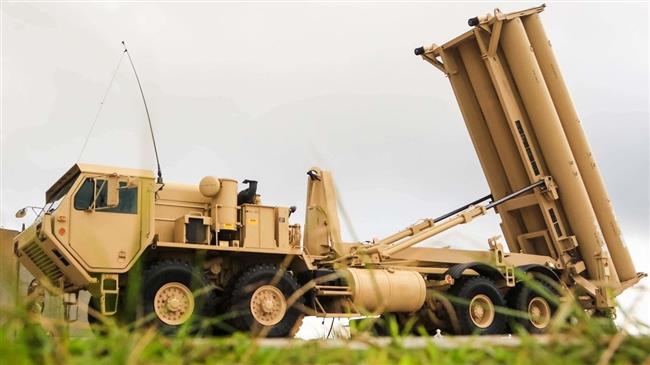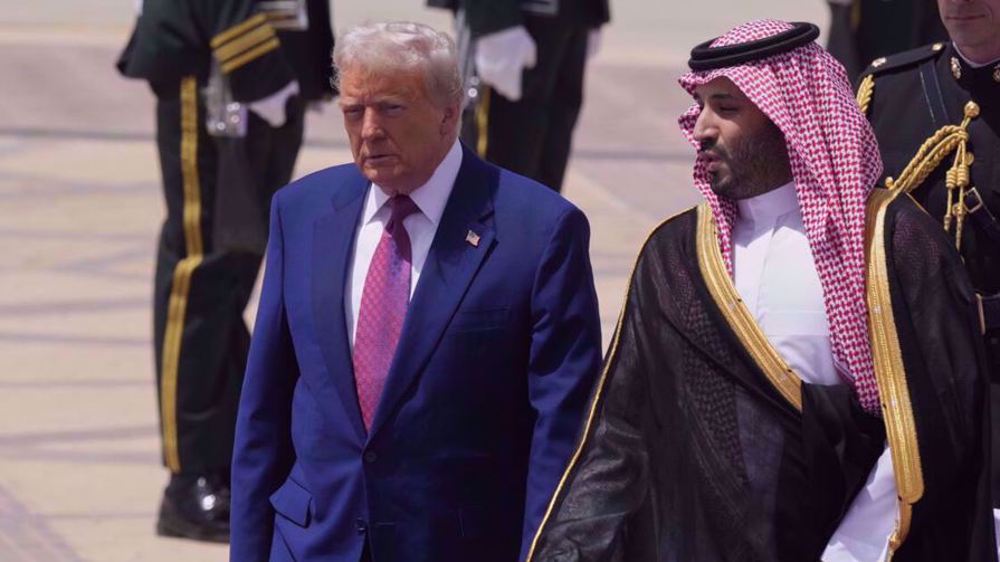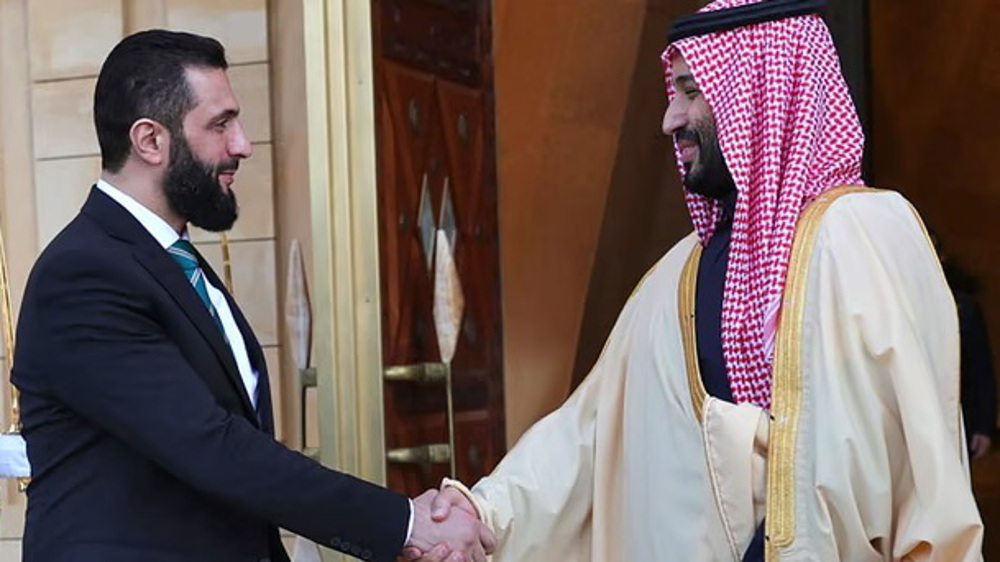US, Saudi Arabia closer to signing $15b deal for THAAD missile system
Saudi Arabia has signed a letter of offer and acceptance with the United States for Terminal High Altitude Area Defense (THAAD) missile system, taking a significant step toward closing a $15 billion deal, a US State Department spokesperson says.
The State Department spokesperson, who was speaking on condition of anonymity, said Wednesday that the Saudis and US officials signed the crucial government-to-government document earlier this week, paving the way for the massive sale of 44 THAAD launchers, missiles and related equipment.
The State Department spokesman said the deal supports the “long-term security of Saudi Arabia and the [Persian] Gulf region” in the face of regional threats.
Washington and Riyadh entered formal discussions for THAAD in December 2016. A Saudi official told Reuters in October that the deal could well be closed by the end of the year.
Congressional approval for the THAAD missile defense system sale was given in 2017. The US had already supplied the advanced missile system to Qatar and the United Arab Emirates, both Saudi Arabia's neighbors.
The system has also been deployed to South Korea to allegedly address US regional allies' concerns about a possible strike by North Korea, amid ongoing tensions over Pyongyang's ballistic missile tests and nuclear weapons program.
During his first trip to Saudi Arabia last year, President Donald Trump signed a $110 billion arms deal with the Saudis, with options to sell up to $350 billion over a decade.
Facilitated by Trump’s son-in-law and senior adviser Jared Kushner, the massive package includes missiles, bombs, armored personnel carriers, combat ships, THAAD missile systems and munitions.
The announcement generated backlash in Congress, with Republican Senator Rand Paul promising to work to block at least parts of the package.
The Trump administration is looking to loosen restrictions on American arms sales to boost the country's weapons industry.
The development comes as the US is under pressure to suspend its arms sales to the Saudi regime, which has been waging a deadly military aggression against Yemen since 2015.
According to a new report by the Armed Conflict Location and Event Data Project (ACLED), a nonprofit conflict-research organization, the Saudi-led war has so far claimed the lives of around 56,000 Yemenis.
Defying President Trump’s pro-Saudi policies, the Republican-controlled US Senate voted on Wednesday to advance a resolution to end US military support for the Saudi-led coalition waging war on Yemen.
The war in Yemen has been the focus of international attention since the assassination of dissident Saudi journalist Jamal Khashoggi at Riyadh’s consulate in Istanbul, Turkey, in October, which is widely believed to have been ordered by Saudi Crown Prince Mohammed bin Salman.
Meanwhile, pressure was mounting on the Trump administration over supporting Riyadh following the killing of Khashoggi, a Washington Post columnist.
Trump has thrown his support behind bin Salman, citing the importance of defense deals in defending his decision to stick with Riyadh in the aftermath of the slaying.
The CIA has provided the administration with a tape of Khashoggi’s murder, which Trump has refused to listen to.
VIDEO | Press TV's news headlines
Palestinian factions denounce US for offering ‘consular services’ inside West Bank settlement
Iran, Oman FMs meet ahead of third round of indirect nuclear talks with US
VIDEO | UN commemorates Mother Language Day with celebrations
VIDEO | Pakistan, Afghan Taliban trade accusations after border clash
VIDEO | Venezuela races against time to rebuild homes bombed by US
Ex-IAEA chief warns US of ‘horrific’ costs of war on Iran
India’s Modi visits occupied territories to deepen ties with Israel despite Gaza genocide












 This makes it easy to access the Press TV website
This makes it easy to access the Press TV website